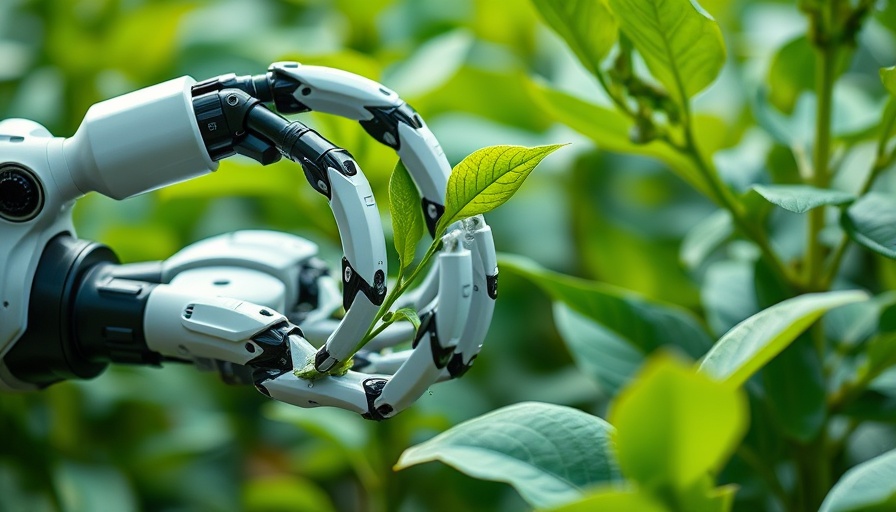
Innovative Solutions in Agriculture: The Role of Technology
In an age where environmental challenges are posing significant threats to agriculture, innovative solutions like the soft robotic leaf gripper are stepping up to address these pressing issues. Developed by Cornell University researchers, this gentle device not only grasps plant leaves but also injects them with sensors and genetic material, enabling real-time monitoring and potential bioengineering.
Why Is Plant Health Monitoring Essential?
With rising concerns about droughts and the overuse of fertilizers, understanding the specific needs of plants has never been more critical. This robotic gripper provides a new path to install sensors that monitor environmental stress factors, leading to timely interventions. By focusing on individual plants, this technology embodies the essence of precision farming—creating tailored strategies for healthier crops and higher yields.
How Do These Sensors Work?
The sensors injected into the leaves allow researchers to gather vital information effortlessly. For instance, AquaDust—a tiny gel particle—glows in response to water stress signals, giving farmers immediate insights into their plants' hydration needs. Additionally, the RUBY probe shows areas transformed genetically by turning them red, making plant biotechnologies more transparent and measurable than ever.
Future Implications for Farmers and Horticulturists
This technology not only promises to enhance crop resilience against environmental changes but also opens up new avenues for bioengineering. Farmers can potentially use this gripper to adapt crops to local conditions, enabling future generations to cultivate food more efficiently and sustainably. As we move forward, the implications of such advances could reshape agricultural practices fundamentally, ensuring food security in a warmer world.
Real-Time Data for Sustainable Practices
The integration of real-time sensor data helps farmers make informed decisions, reducing waste and improving sustainable practices. Understanding how different conditions affect plant health at the leaf level means less guesswork. As a result, actions taken can directly correspond with the plant's immediate needs, fostering a healthier agricultural environment.
Challenges and Considerations Ahead
Despite the promise of these advancements, the adoption of robotic grippers must tread carefully. Ethical considerations regarding genetic modification and its impact on ecosystems must be at the forefront of any technological advancements. The conversation surrounding biotechnology's role in food production will play a critical role as we navigate these new frontiers in agricultural technology.
 Add Row
Add Row  Add
Add 




Write A Comment